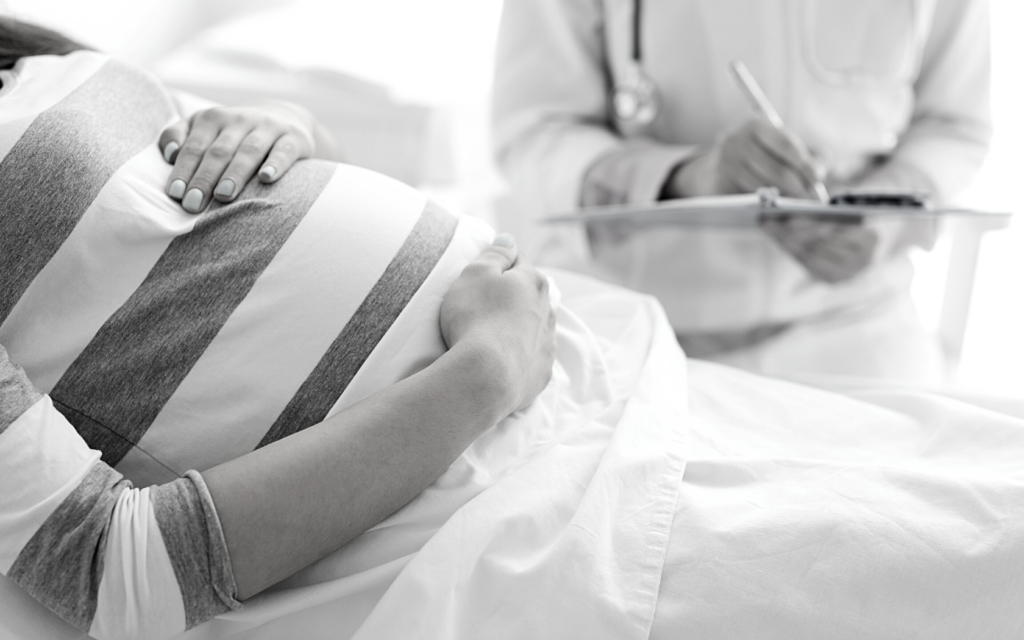In 9 months of pregnancy, many to-be-mothers feel a whirlwind of emotions. This usually accommodates some form of discomfort and pain. And a huge learning curve in completing daily tasks. But women embrace such a variety of changes because there’s a beautiful light at the end of the tunnel. Unfortunately, for some mothers, this joyous life event can become devastating. Sometimes maternal infections go undetected or untreated..
Most infections can go away on their own. But infections during pregnancy can become life-threatening for the mother, or the baby. Or sometimes, both. Especially when left untreated or undetected.
If you or a loved one suffered from improperly treated maternal infections, you may be entitled to compensation. If you get in touch with us, we can help you determine whether your maternal infection is a case for malpractice. Contact the team of Hampton & King today.

Common Maternal Infections That May Result In Birth Injuries
Not all maternal infections will lead to complications for the baby. For example, the common cold is usually harmless to the fetus and the mother can overcome it quickly. However, there are certain maternal infections that can lead to serious complications for the unborn baby. Especially if left untreated. These injuries may include brain damage, respiratory issues, or even death.
Here are some common maternal infections that may lead to birth injuries and have other grave results:
Urinary Tract Infections (UTI)
Most women will experience a UTI at least once in their life. Normally, these infections can clear up with the aid of antibiotics. If not treated promptly though, a UTI may spread to the kidneys. This could result in a premature birth, low birth weight, preeclampsia, or sepsis.
Chorioamnionitis
This infection attacks the amniotic fluid and sac babies develop in. If left untreated, it can spread to a baby’s brain and cause meningitis, or spread to the blood and cause sepsis. Both conditions can lead to permanent disabilities in a baby. Or even death.
Rubella
What was once a very common infection before the 60’s, is now very rare. But it can still occur. That’s why it is important to test expecting mothers during early pregnancy for Rubella. If a mother passes Rubella onto a baby, it can result in: cerebral palsy, congenital heart disease, intrauterine growth restriction, miscarriage, or stillbirth.
Group B Streptococcus (GBS)
GBS is a bacterial infection that may be found in a woman’s vagina or rectum. This infection can be passed onto the baby. It can have serious consequences including sepsis, pneumonia, and meningitis. It is important to check for GBS as a mother with this infection may be asymptomatic.
Chickenpox
Chickenpox can be very dangerous for people over the age of 16 or under the age of 1. Mothers with chickenpox may pass it on to their babies. When a mother contracts chickenpox during pregnancy it can greatly affect the results. For example, if a mother gets chickenpox in the early weeks of pregnancy, the chances of birth injuries are low. The further along the pregnancy, the higher the chances for a birth injury are. Here are some of the complications babies who develop chickenpox may face:
- Congenital varicella syndrome
- Pneumonia
- Developmental delays
- Cognitive disabilities
Syphilis
Syphilis is an STD which can pass on to a baby during delivery. In a newborn it can result in brain damage, hearing & vision loss, and even death.
Toxoplasmosis
Toxoplasmosis is a parasitic infection. It can result from uncooked meat, certain soils, and cat fecal matter. This infection in a pregnant woman can be dangerous as she can pass it on to her baby. If passed, it can interrupt fetal development and result in a variety of birth injuries including brain damage.
How Maternal Infections Lead To Malpractice
There’s no way expecting mothers can avoid maternal infections altogether. However, it is very possible to ensure the infection is not passed on to her baby. A doctor has the responsibility to order appropriate tests. They must check for certain infections during pregnancy. And if something is detected, the doctor must carry out the correct treatment to prevent the infection from spreading to the baby.
Unfortunately, many doctors fail to either prevent, detect, or treat maternal infections. If this leads to a birth injury or other complications, it could be a case of medical malpractice.

Seeking Justice For Medical Malpractice & Maternal Infections
Children do not deserve to have a disadvantaged start to life and mothers shouldn’t suffer either. Especially if something is preventable. Especially if a more responsible doctor cared for them. If your maternal infection led to a birth injury due to a doctor’s neglect, contact the team of Hampton & King for a free consultation.




